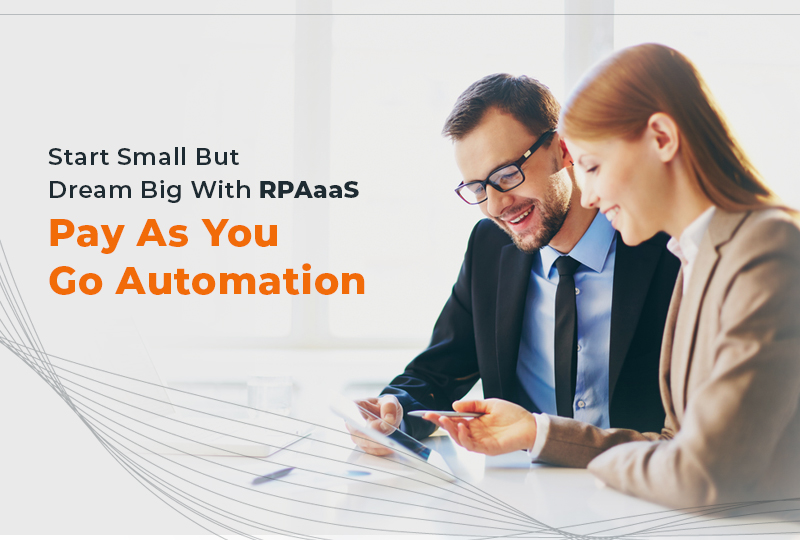The trend for adopting Robotic Process Automation (RPA) is running deep down into the blood of all futuristic IT enthusiasts, but many of them are left behind in the race as they lack confidence and clarity about the required investment.
The predominant issue that hovers over their mind is the vast ”package compiled” outlay that is not proportional to the RPA-driven need of the business. Such bulky pricing packages not only result in heavy investments, but also triggers the idle bot time and no or negligible ROI.
Lack of adequate use of the RPA bots, post such hefty investment, slowly kills the motivation to digitize all together!
A study by Grand View confirmed that the current market of RPA is around $1.1 Billion with a predicted growth rate of 33.6% from 2020 to 2027! But, this is only possible if the RPA giants break down the perturbing prices and work on the grassroot to motivate organization of every size to undergo digitization with robotics.
It is quintessential to understand that automation needs are varied across industries, functionalities, and companies – and putting them under one common bracket is unfounded. The primary roadblock identified by businesses that curb them from unveiling the profound benefits of RPA are:
- Lack of budget
- Lack of process identification that urge automation
- Failing to achieve ROI of RPA bot post heavy investment
- Hefty license plus service costs
- Anxiety over the success of automation initiative
- Elongated decision making cycle due to managerial confusion regarding colossal investments involved
- Complex procurement processes
- Locking of contract for approximate 3 years
- Recurring weighty maintenance charges with leaden processes
- Impossibility to scale down hardware installations in on-premise data warehouses
So, what should organizations do?
The best way to break these blockades is to “Start Small and Scale Big with RPA as a Service Pay As You Go Automation“.
AutomationEdge has designed the innovative, RPAaaS consumption-based pricing model to help consummate the goal for widespread adoption of the pre-eminent intelligent automation solutions. RPAaaS model blooms on two major theories – “every business has the right to able to leverage RPA” and “pay only for what you use.”
RPAaaS allows enterprises to stop thinking and start acting with small pilot projects having tangible benefits and defined ROI realization within the shortest span of four to eight weeks.
The rationale behind the entire concept traces back to the basic integration strategies that promote enhanced productivity, justifiable ROI, higher accuracy, and customer satisfaction.
Such pricing model defined by the ”Price Per Bot Minute Usage” allows serving the bite-sized appetite of the businesses, making the RPA and AI technologies affordable, scalable, and flexible for them.
Undoubtedly, RPA is the new big-bang in the world of Digital Enterprises, but every business, cutting across industries, size, and sectors, should have a fair chance to explore its ineffable benefits.
RPAaaS pricing model is designed to wash out the full-suite of overkill offered by initial RPA tools with a more realistic, goal-oriented approach. Enterprises can now live their RPA dream by starting small with Pay As You Go Automation, with a hawk-eyed focus on primarily eradicating all the basic, everyday, cumbersome, repetitive tasks like – password resets and other common help desk queries.
Consumption-based pricing also makes automating the seasonal tasks like salary processing or monthly reporting or weekly server checks possible without heavy investment and long term commitment.
Once such baby steps towards RPA adoption are cemented, the long journey towards complete digitization seems like a child’s play to achieve.
So, with RPAaaS, businesses can now embark on the journey to achieve their long-drawn dream towards avant-garde digital workplace goals.
Culminating the story by re-confirming the key to RPA success – “Start Small but Dream Big!” And, the best you can do this is with AutomationEdge’s RPAaaS model.

